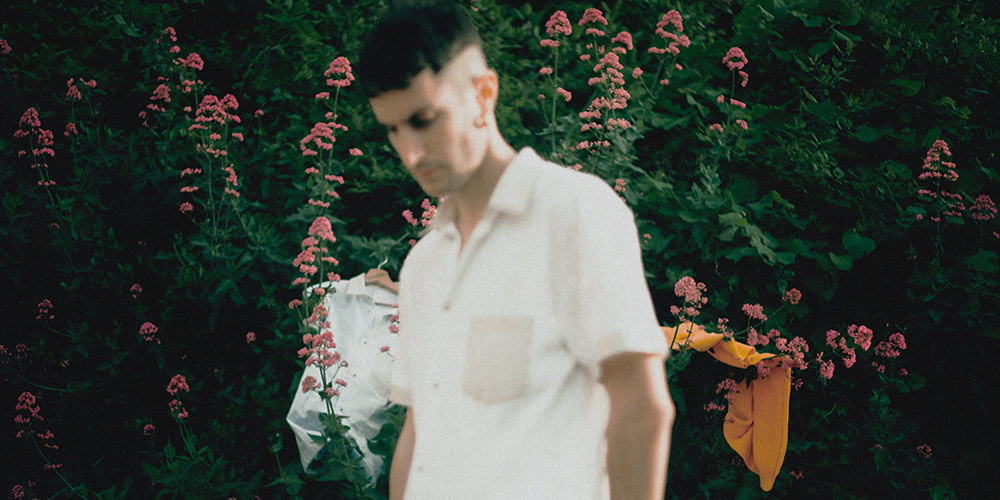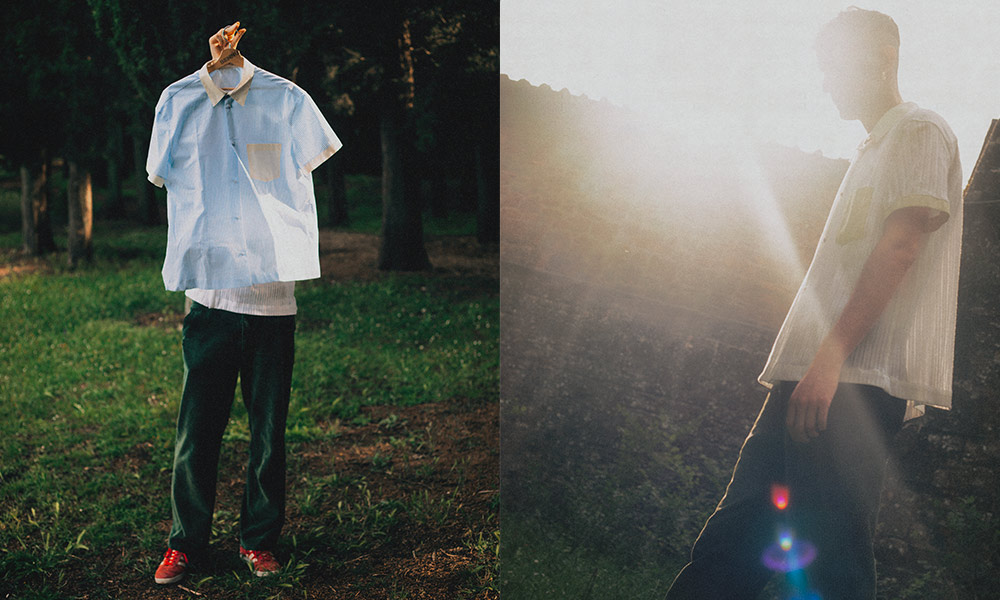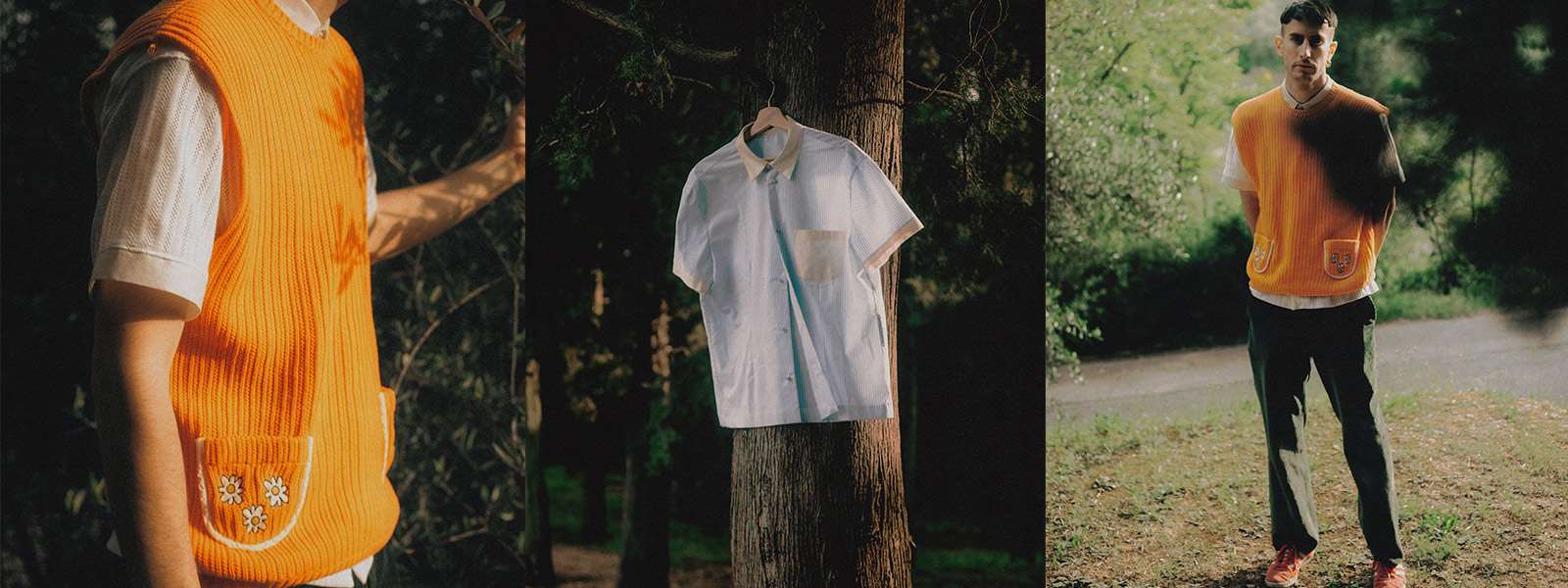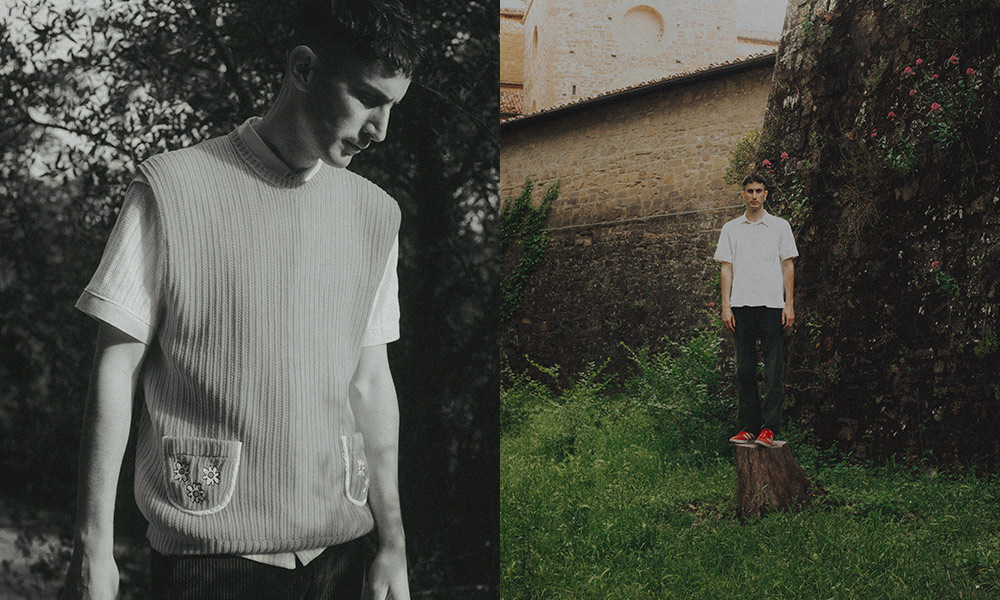
SUSTAINABLE SYMPOSIUM
BENNU
by Francesco Dossi
Unique pieces that carry with them the wind that sweeps away prejudices and constraints’. This is what’s stated in the description of BENNU’s SPRING23 collection, called Luce, available for sale on the brand’s online shop. This definition, by extension, perfectly summarises the entire spirit that permeates this project, where the rediscovery of local tailoring tradition merges with the assertion of a fluidity that characterises both gender and the relationships between human beings and nature. BENNU is a sprout that has blossomed from the land of Siena, more precisely from an idea by Niccolò Chiuppesi, the designer with a background at Yoox and Dior, who with his romantic and revolutionary spirit aims to ‘reclaim from the past to protect the future
‘Memory’ is the theme that resonates widely in the BENNU universe. Is there a specific memory you associate with love for fashion, or a particular garment?
‘Memory’ and its contamination are pillars of the BENNU universe, resulting in a satellite that revolves and cyclically influences the work and image of the brand. Although, I’ve memories associated with the birth of this passion for the world of fashion, I can’t pinpoint a specific moment, a sort of beginning. I’ve always lived in close contact with the tailoring world; my grandmother was a seamstress, and I often spent afternoons in her room. I believe that being in constant contact with clothes, fabrics, and needles unconsciously led me to make fashion my profession.
Let’s talk about a specific garment: the blazer. At BENNU, the structural reinterpretation of the blazer becomes a liberation from the categories and gender stereotypes that this garment has historically been imbued with. In the history of fashion and costume, there are prominent names who have worked on this garment to challenge its stylistic codes and the socio-cultural meanings attached to it (such as Yves Saint Laurent or Giorgio Armani, for example). How does BENNU’s approach to the blazer fit into the contemporary debate?
The choice to work on the blazer was driven by the multiple facets that this garment possess. Firstly, as you mentioned, the blazer is the perfect symbol to break free from all those filters and categorisations that’ve been limiting for many people in their choice of how to dress. Therefore, like a manifesto, the blazer positions itself as an object, as a tool, to convey our desire to be protagonists of a universe—a conscious universe—where anyone who chooses to wear a garment from our brand feels like an integral part of the process of change that is shaping our society.
Since the brand’s launch in 2021, when sustainability and gender fluidity were hot topics in public debate, do you believe the fashion industry has changed? Has it learned to approach these issues in the best way possible?
I found a passage by the French philosopher Foucault, where gender is referred to as a “fluid variable that changes and transforms in different contexts and epochs,” which I believe perfectly aligns with the brand and its vision. I think the fashion industry, like contemporary society, is undergoing a radical process of change. While there’s been significant strides forward, with the phenomenon being spotlighted and becoming public knowledge, there’s also significant steps backward and moments of forgetfulness. However, fortunately, the commitment to a more responsible and inclusive approach in fashion is growing steadily. Many brands, big and small, are embracing these themes more and more. It’s also true that a significant gap has been created regarding respect for the environment and people—a gap that will take time to close. Education will play an important role in this process.

How do you feel that the public reception regarding the aforementioned issues has changed?
Certainly, there’s awareness and greater attention towards responsible themes and the recognition of the rights of all individuals involved in the fashion system. However, it’s also true that often awareness doesn’t translate into concrete actions, as evidenced by the frequent queues at the entrances of fast fashion chains during certain times of the year. The phenomenon of compulsive buying and the disposable treatment of garments are deeply rooted in society and individuals, and overcoming this hurdle is quite challenging.
Therefore, the commitment of brands today shouldn’t only be focused on economic growth driven by the product but also on educating the customers about their purchasing behaviour and the attention they dedicate to their choices when engaging with a garment. If clothing remains a means to convey political and social messages, then brands must be able to deliver the right message, because in this period there’s no room for further confusion in the path towards a responsible approach.
I find that BENNU’s explicit statement of intent, particularly the collaboration with Italian social tailoring workshops for garment production, is commendable. Could you provide more details on how this production approach works and why it’s important?
I’ve always believed that the added value in any professional relationship lies in the human connection that’s established with the people involved. In an era where the management of time and relationships has drastically crumbled, I believe that engaging with small-scale entities that prioritise personal relationships is crucial and adds value. It’s important not only for the final product, as individuals can feel like integral parts of a project, embracing it and taking ownership, but also for the immense personal contribution that these relationships provide. I’ve experienced various situations where there was a complete alienation of the human element, reduced to mere numbers and executors, as if the soul had been left in a dressing room and forgotten. Gradually, I’ve learned to rediscover this connection, the importance of listening and being heard, and I’ve found personal well-being that also translates into the work of everyone involved.
I read that BENNU aims to express ‘an indissoluble connection with the elements of nature, the earth to which we all belong.’ Have you always had this sense of respect and closeness to our planet, or did you develop it over the years?
I’ve been fortunate to be born and raised in one of the most envied places in the world, Tuscany, a destination for daily pilgrimages and expeditions that are transforming the landscape into a continuous swarm, often rendering it unrecognisable in my eyes. The bond with nature and the land is therefore something indissoluble, visceral, which I’ve always carried with me, but at some point in life, I also despised it because it couldn’t provide me with what I thought was necessary. Leaving my land, my scents, my colours actually made me even more connected to them. That is why, after years in Milan, I decided to move back home, even though it’s no longer the same place I was accustomed to seeing with my own eyes. Instead, I try to recreate it within my work.

With the Martina Camani X BENNU and Verde Edrev X BENNU capsule collections, you’ve directly approached the world of art, bringing to light collaborative projects that have both social and aesthetic aims. Do you believe there are differences in how fashion and art can serve as channels for important social issues? If so, what are they?
No, on the contrary, I believe that the power of contamination is the strongest weapon to fight indifference and selfishness today. With Martina and Verde, thanks to the supervision of Eleonora Angiolini for Contemporary Attitude, we embarked on a journey that showcased BENNU’s values in a different way than it had ever been before. Different crafting techniques were employed, there was a different exploration and a different approach to how a garment was presented. This was a moment where the brand strengthened its image and commitment to being a spokesperson for a message of change in contemporary society, and I believe the same was true for Martina and Verde.
From the narratives of some collections, your interest in Italian literature and philosophy is evident. Where does the love for these fields originate?
The love for these fields arises from the excellent work carried out by all my literature, history, and philosophy teachers throughout my school years – I mean no disrespect to other teachers. I’ve always been encouraged to go beyond and understand even more the reasons behind things, the social and literary dynamics, the strong connections between two parallel worlds. For last year’s summer collection, I received tremendous help from a high school teacher I attended, who remains, to this day, one of the enlightened figures in my field of origin. The love, more than for the subjects themselves, stems from conversations, discussions, topics, and the opportunity to talk about everything without talking about anything, or perhaps even the opposite. I’m trying to bring these interests of mine within my works, and I would also add cinema to them, because I feel them as my own, as a strong element to tell a story, my story.
Living in harmony with our surroundings also means accepting and feeling accepted for who we are and how we are. BENNU carries out a mission of respect and inclusion, where environmental sustainability, ethics, and gender fluidity converge into a single communicative intent. Is this choice a result of personal sensitivity or do you consider these topics ‘inseparable’?
I’d say both variables in this case. In my personal belief, these elements cannot exist separately. I’v had the opportunity to discuss this topic with people who are also on the front lines in the battle for the protection of environmental and human rights, and interesting insights have emerged that have further strengthened my belief in this. I believe that the moment we started losing respect for those around us was the same moment we started losing respect for what surrounds us. There cannot be social well-being, collective well-being, if there’s no harmony with nature and everything that surrounds us. We cannot expect to be well and make others well if we don’t first live in harmonious relationship with the elements that surround us. And I don’t believe this is just a matter of personal sensitivity, but an extreme form of respect and gratitude towards the nature that gives us life every day.

Credits: Pictures by Angelo Guttadauro, Interview by Francesco Dossi